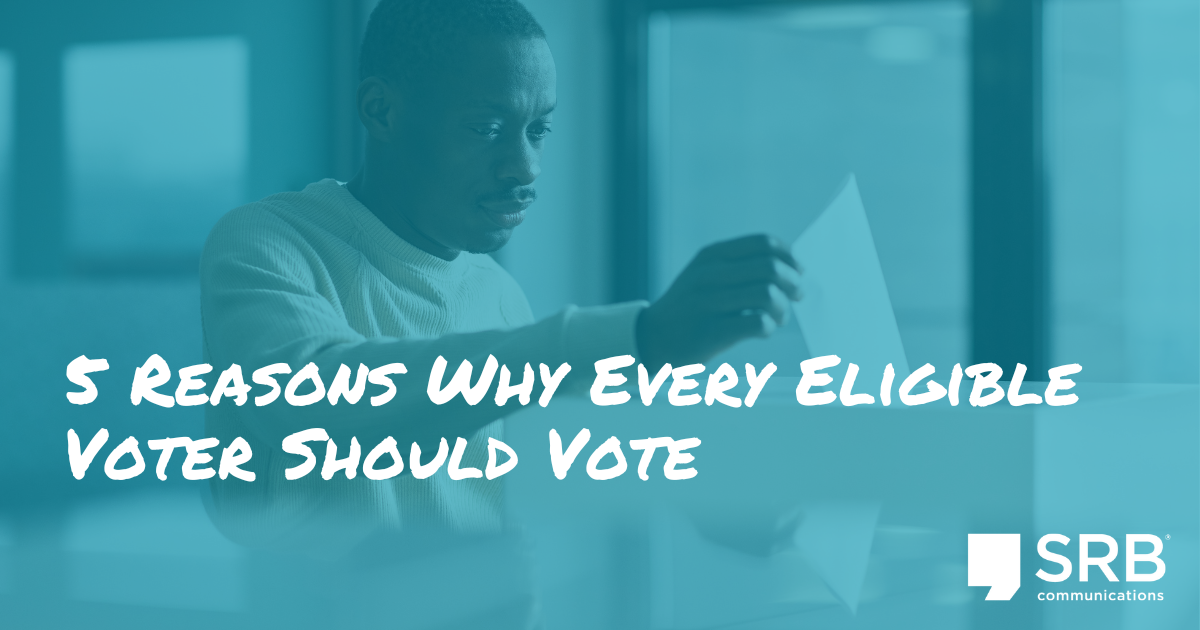News & Insights
5 Reasons Why Every Eligible Voter Should Vote

If you are one of the millions of eligible voters who are not planning to vote during Election 2024, shame on you.
Are any of these excuses yours? “My one vote doesn’t matter.” “I don’t live in one of the swing states that will decide the presidential election.” “I don’t like any (or either) of the candidates.” “I’m not informed.”
All baloney. Americans’ right to vote is the capstone of our democratic process. Voting is a privilege and exercising it is a responsibility for all of us. Staying informed and engaged in the important issues around us – locally, nationally and globally -- is the essential work of a good citizen.
In his book, “The Bill of Obligations: The Ten Habits of Good Citizens,” author Richard Haass says that being informed is essential to intelligent voting and understanding what a particular candidate offers in terms of experience, judgment, ethics and trustworthiness. Uninformed voters are subject to being manipulated by misinformation. An informed person, Haass says, must be able to choose sources that will help them be informed and avoid those that mislead or misinform.
While big races are rarely if ever decided by a single vote, an NPR story in 2018 reported there were more than a dozen races decided by a single vote or ending in a tie over the previous 20 years.
Truth be told, there are examples where a relatively small number of votes made a difference in an election’s outcome. In 2000, George W. Bush was elected U.S. president on the strength of a winning 537-vote margin over Al Gore in Florida – out of 6 million votes cast. With all of Florida’s electoral votes in hand, Bush won the Electoral College with 271 votes, just one more than he needed. As they say, the rest is history.
Beyond the U.S. presidential race, here are five important reasons why your vote matters this Election Day:
- More than 160 policy-setting referendums are on ballots in 41 states this year. Ten states have abortion-related measures, the most in any single year, according to Ballotpedia. Other ballot initiatives relate to issues such as noncitizen voting in state and local elections, ranked-choice voting, marijuana use, increasing the minimum-wage and criminal justice, law enforcement and police funding.
- Lawmakers are being chosen for federal and state offices all over the country. All 435 seats in the House of Representatives, 33 seats in the U.S. Senate, 11 governors and a multitude of state legislators are up for election.
- Closer to home, election winners for local government offices – mayors, sheriffs, judges, boards of supervisors, town councils, school boards and more – will make laws, decide policies and manage community affairs that will make a difference in Americans’ everyday lives.
- Voting results can fuel elected representatives’ action, influence decision-making and sometimes dispatch bad ideas back to the drawing board.
- Even if your opinion or favored candidate turns out to be on the losing end of this year’s vote, negative opinions may influence an issue’s future course or public opinion going forward. Savvy politicians pay attention to the weight of their opposition as well as their support. As President Gerald Ford said, “Compromise is the oil that makes governments go.”
If you haven’t voted yet, there’s still time. We hope you’ll get to the polls Tuesday.
Head to vote.org to review the candidates and issues on your local ballot and prepare to vote.



